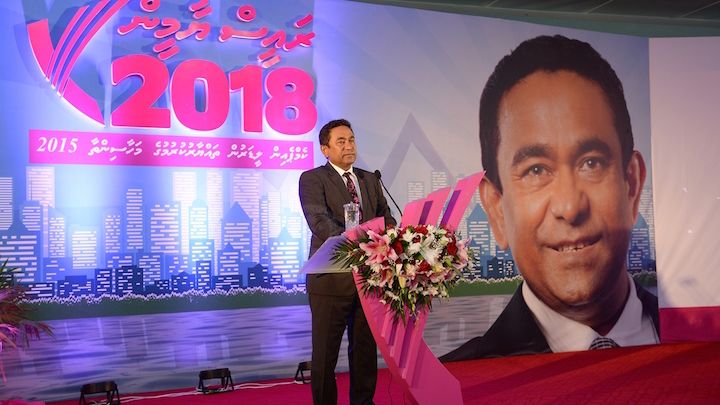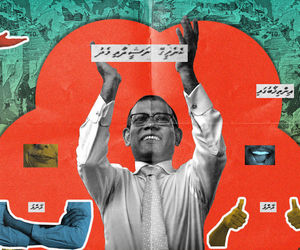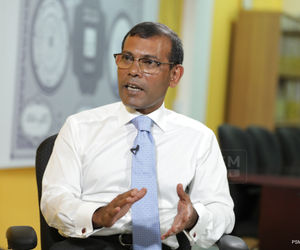Nasheed must appeal at Supreme Court, says President Yameen
The government has done all it could to ensure former President Mohamed Nasheed’s right to appeal his conviction on terrorism charges, President Abdulla Yameen said last night, and advised the opposition leader to file an appeal at the Supreme Court after the High Court rejected the state’s appeal of his 13-year jail sentence.

13 Sep 2015, 09:00
The government has done all it could to ensure former President Mohamed Nasheed’s right to appeal his conviction on terrorism charges, President Abdulla Yameen said last night.
Speaking at the closing ceremony of a symposium held to train campaigners for his 2018 re-election bid, Yameen said he tried to “arrange for an opportunity” to appeal Nasheed’s 13-year jail sentence following multiple requests to both the president’s office and the prosecutor general.
But the High Court rejected the prosecutor general’s appeal, Yameen said, and Nasheed himself said at court that he did not believe the state could appeal on his behalf.
“The path he has to walk now is to go to the Supreme Court. But instead his foreign lawyers came and said we will do everything we can to impose sanctions on the Maldivian people,” he said.
Become a member
Get full access to our archive and personalise your experience.
Already a member?
Discussion
No comments yet. Be the first to share your thoughts!
No comments yet. Be the first to join the conversation!
Join the Conversation
Sign in to share your thoughts under an alias and take part in the discussion. Independent journalism thrives on open, respectful debate — your voice matters.




